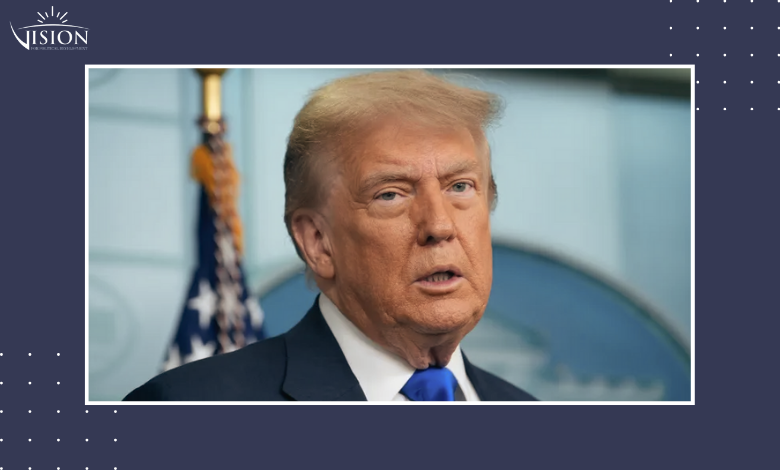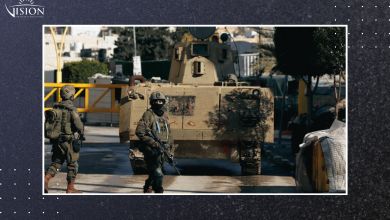The U.S. ‘Handling’ of the Gaza Genocide?

Since the onset of the Gaza Genocide —and the subsequent conflicts across the region—the United States has positioned itself as a mediator and sponsor of negotiations aimed at halting the violence. In several agreements, it has even presented itself as a guarantor of implementation and, at times, a partner in monitoring compliance.
At the same time, the U.S. has acted as a full partner to the Zionist occupation in its aggression—backing and sponsoring it unconditionally, under all circumstances. This support has extended to direct, open involvement in military operations against Yemen and Iran.
However, undeniably and demonstrably, all observable evidence suggests that these are U.S.-led wars in the region, with the Israeli occupation army serving as Washington’s primary and most effective instrument—an entity functioning as a massive military base, or the world’s largest “aircraft carrier,” permanently anchored in the Middle East.
In these military offensives, the United States has played multiple roles—both direct and indirect—depending on the demands of the battlefield and the broader war strategy. At times, the focus has been military; at others, political, diplomatic, or otherwise—whatever best serves the interests of the collaborators, and the objectives of these operations.
When military action was needed, the U.S. deployed aircraft carriers, warships, and destroyers, and supplied the Israeli entity with all forms of ammunition. And when direct strikes were deemed necessary—as in Yemen and Iran—American warplanes were mobilized from across the globe to carry them these offensives.
When the moment called for diplomatic, legal, or political action, Washington activated its political machinery—whether in the UN Security Council, at the United Nations, through the State Department, or via the National Security Council—to do what was needed.
Among the many roles the United States has played in managing these conflicts—particularly the genocidal onslaught on Gaza—perhaps the most paradoxical is its role as a mediator in ceasefire negotiations and a guarantor of their implementation. In the context of regional conflict, that role stands out as one of its most cynical and ironic expressions.
What makes it even more striking is that the negotiation process—and Washington’s role in it as both mediator and guarantor—appears to have been less about ending the war or halting the genocide and mass slaughter of unarmed civilians, and more about managing the battle strategically.
A number of indicators point to this, most notably:
- The U.S. has aligned itself with the Israeli government on the genocide’s overarching goals—particularly the destruction of the resistance, dismantling its political and military infrastructure, and asserting control over the Gaza Strip. As a result, the negotiation process and the terms being floated do not lead to a permanent ceasefire, a full Israeli withdrawal from Gaza, or a Palestinian consensus on local governance for the Strip.
Instead, these talks are narrowly focused on securing the release of Israeli captives held by the resistance, while deliberately leaving the endgame of the war unresolved. This approach guarantees the continuation of massacres, starvation, and daily suffering—buying time in the hope of achieving the declared goals: forced displacement, dismantling the resistance, and full control over Gaza.
- Both the Biden and Trump administrations have publicly spoken of seeking a political solution, ending the ‘war’ (clearly a genocide), urging Israel to adhere to international norms, and expressing concern for humanitarian aid and civilian relief. Yet, at the same time, the U.S. has provided unwavering military and political support to the Israeli entity—while repeatedly using its Veto power at the UN Security Council to block any binding resolution that would halt the genocide in Gaza.
In effect, Washington’s actions have ensured the war’s continuation, even as its rhetoric claims to pursue peace.
- The U.S. administration has fully adopted the Israeli narrative throughout the negotiation process, operating hand-in-hand with the occupation government—even down to the details. This includes co-authoring the text of proposed agreements and crafting negotiation tactics aimed at helping Israel achieve its objectives.
The strategy has been clear: corner the resistance—particularly Hamas—into a position where rejecting these proposals becomes politically costly, as it could be framed as opposing the will of the Palestinian people to end the aggression, ease suffering, and stop the bloodshed.
In many cases, ceasefire proposals have been drafted either entirely by Israel or jointly with the U.S., then simply presented to Hamas as a finished product—leaving little room for genuine negotiations.
A clear example of this dynamic is what occurred with the proposal presented by Bishara Bahbah, representing Steve Wyckoff, during the most recent negotiation round. Bahbah submitted a draft that, after discussion, was accepted by the Palestinian resistance. However, the proposal was later rejected by both the U.S. and Israel. Hamas was then accused of intransigence and of rejecting the “original” text supposedly put forward by Wyckoff—despite having agreed to the version presented to them.
This incident underscores the manipulative nature of the negotiation process, where the resistance is set up to appear obstructive, even when it agrees to terms, while the real shifts and rejections happen behind closed doors—between Washington and Tel Aviv.
- The United States and Israel have consistently rejected all proposals—whether from Palestinians or others—that call for the inclusion of additional guarantor parties in the negotiation and agreement process. Proposals to involve countries like China, Russia, or Turkey have been repeatedly dismissed. Instead, Washington has insisted that it alone—alongside Egyptian and Qatari mediators—serve as the sole guarantor of the process.
- This insistence ensures that Israel remains free to pursue its objectives and impose its vision for the future of the genocide and the broader conflict—without oversight, accountability, or restraint.
All proposals aimed at bringing a definitive end to the military aggression have been categorically rejected. Reports indicate that the Palestinians submitted multiple comprehensive and politically realistic proposals—most notably the recent initiative announced by Hamas, referred to as the “Comprehensive Package Agreement.” This proposal could have paved the way to ending the genocide once and for all.
The initiative included a full and immediate prisoner exchange, a permanent ceasefire, the complete withdrawal of Israeli forces from Gaza, a consensus-based Palestinian administration for the Strip, a long-term truce, and guarantees from Arab, Islamic, or international actors to ensure implementation.
Yet every element of the proposal was rejected—first by the United States, even before Israel responded. None of its terms were allowed to enter into the formal texts of any agreements under discussion.
- The United States has consistently refused—and not even once pursued—any comprehensive approach that guarantees Palestinian self-governance in the Gaza Strip. Instead, it has gone further in echoing, and at times even exceeding, Israeli proposals—threatening or floating options that serve the occupier’s vision.
Some of these proposals have included the forced displacement of Palestinians, turning Gaza into a “Mediterranean Riviera,” and other fantastical schemes that ignore Palestinian rights entirely. These ideas not only dismiss legitimate national claims, but also pose an existential threat to the Palestinian people and their cause—fully aligned with the Zionist project and its long-term goals.
The United States has consistently supported Israel on the international legal front, using threats and pressure against any actor that applies real legal leverage capable of halting the genocide—whether through the International Court of Justice (ICJ), the International Criminal Court (ICC), or other international and domestic legal mechanisms.
A clear example is the pressure exerted on South Africa, and the sanctions imposed on the ICC and its staff—specifically those working to bring Israeli leaders to trial for their involvement in the genocide against the Palestinian people. These actions reveal the extent of U.S. commitment to shielding the occupation from legal accountability.
Taken together, these facts lead to a clear conclusion: the United States is not a neutral actor but a central party in the aggression against the Palestinian people—and, more broadly, against the region itself. Through this war, Washington aims to reshape the Middle East in a way that secures continued U.S. dominance, while cementing Israel’s role as a core pillar of that dominance.
The ongoing wars in the region appear to be part of a broader effort to reassert American hegemony—recasting the U.S. as the sole global power with the authority to intervene in Middle Eastern and wider Arab and Islamic affairs. At the same time, the goal is to rebrand Israel as a brutal, efficient imperial tool—one that will continue to serve U.S. strategic interests in the region for decades to come.
This analysis demands a complete rejection of U.S. sponsorship in the negotiation process and underscores the urgent need for Palestinians to actively and persistently seek alternative mediators. It also calls for genuine, effective support from the Arab and Islamic world to help Palestinians break free from the grip of U.S. dominance over the mediation framework. The danger posed by American oversight is not limited to Palestinians—it threatens the entire region. The turmoil unfolding in several Arab states is clear evidence of this broader threat.
The Arab and Islamic worlds possess significant leverage and capacity—but action begins with recognition: a clear understanding of the long-term danger this hegemonic structure poses to the region. Only with that awareness can meaningful, coordinated movement begin to take shape.
Top of Form
If Arab and Islamic states come to recognize that their strategic interests, national security, and collective future are genuinely at risk, they may be compelled to act—collectively and decisively—to curb the disastrous consequences of U.S. policies. These policies not only endanger the Palestinian cause but also threaten the stability, sovereignty, and well-being of the entire region and its peoples.
The U.S. is not a mediator in this war—it is a central actor driving it. Breaking free from its grip is not just a Palestinian imperative, but a regional necessity for survival and sovereignty, and a precondition for lasting peace and justice in a world teetering on the edge of war, destruction, and annihilation.
Originally published on AlJazeera.
Adabted from the Arabic version.





